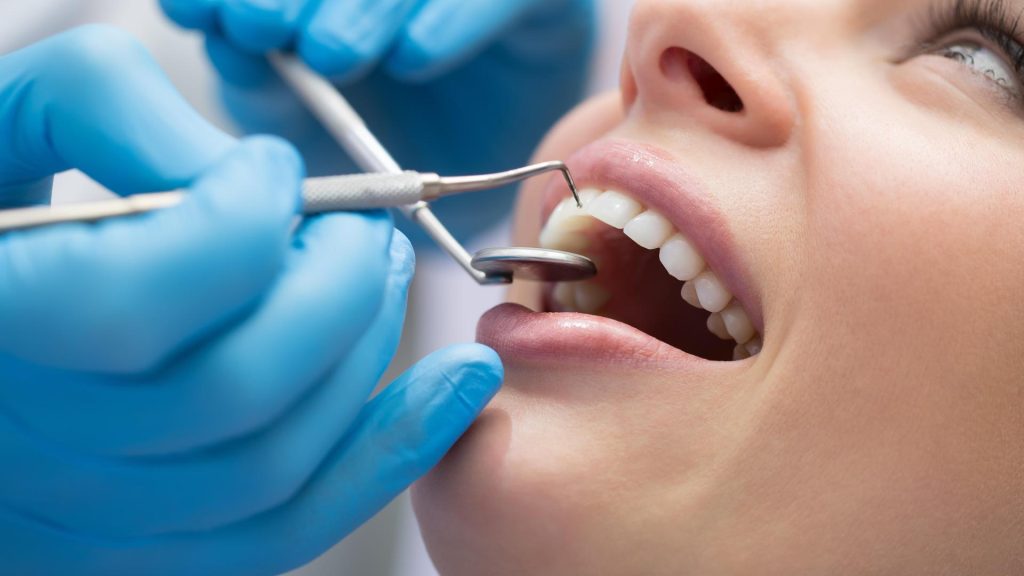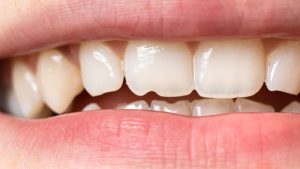A toothache can strike with little warning, transforming from a dull throb to an incapacitating pain that disrupts your sleep, concentration, and overall well-being. Whether it’s a sharp, shooting pain or a constant, dull ache, a toothache is your body’s unmistakable signal that something is wrong within your mouth and requires professional attention. While the ultimate solution lies with a dentist who can diagnose and treat the underlying cause, there are several safe and effective home remedies you can use to manage the pain and discomfort temporarily until you can get to your dental appointment.
It’s crucial to understand that these quick fixes are not substitutes for professional dental care; they are designed to provide interim relief from the immediate symptoms. Ignoring a toothache or relying solely on home remedies can allow the underlying problem – be it decay, infection, or injury – to worsen, potentially leading to more severe complications and more complex treatments. However, knowing how to alleviate some of the distress can make the waiting period much more bearable. This guide explores practical, science-backed home strategies to help you cope with a toothache before seeing your dentist.
Understanding Why Your Tooth Might Be Aching
Tooth pain, or odontalgia, can stem from a variety of dental issues, each potentially requiring a different treatment approach. Common culprits include:
- Tooth Decay (Cavities): Bacteria erode enamel, creating holes that expose sensitive inner tooth layers.
- Dental Abscess: A pocket of pus caused by a bacterial infection at the tooth root or in the gums. Often causes severe, throbbing pain.
- Gum Disease (Gingivitis/Periodontitis): Inflamed or infected gums can cause pain and sensitivity, especially if roots are exposed. Addressing this early is key, and sometimes interventions focus on gum esthetics to restore receded tissue.
- Cracked or Fractured Tooth: Can cause sharp pain, especially when biting.
- Damaged or Lost Filling/Crown: Exposes sensitive parts of the tooth.
- Pulpitis: Inflammation of the tooth’s pulp (nerve), often due to deep decay or trauma.
- Bruxism (Teeth Grinding/Clenching): Can cause generalized tooth soreness, jaw pain, and wear.
- Impacted Tooth: Often a wisdom tooth that doesn’t have enough room to erupt properly.
- Sinus Infection: Pressure from inflamed sinuses can sometimes mimic tooth pain in the upper teeth.
Identifying the cause is your dentist’s job, but recognizing that pain is a warning allows you to act.
Immediate Home Care Strategies for Toothache Relief
When tooth pain strikes, these temporary measures can help reduce discomfort while you await your dental appointment:
1. Warm Salt Water Rinse: The Soothing Cleanser
This is often the first line of defense and for good reason. A warm salt water rinse can:
- Cleanse the Area: Helps dislodge food particles and debris trapped around the painful tooth.
- Reduce Bacteria: Salt has mild antiseptic properties.
- Soothe Inflammation: Warm water can be soothing, and the salt may help draw out some fluid from inflamed tissues.
How to use: Mix about half a teaspoon of table salt into a cup (8 ounces or ~240 ml) of warm (not hot) water. Swish the solution gently around your mouth for about 30 seconds, focusing on the affected area, then spit it out. Repeat several times a day, especially after meals.
2. Cold Compress or Ice Pack: Numbing the Pain
Applying cold to the outside of your cheek near the painful area can provide significant relief by:
- Numbing Nerve Endings: Reducing pain signals.
- Constricting Blood Vessels: Helping to reduce swelling and inflammation.
How to use: Wrap an ice pack, bag of frozen peas, or ice cubes in a thin cloth or towel (never apply ice directly to the skin). Apply to the affected side of your face for 15-20 minutes at a time. Repeat every few hours as needed, especially within the first 24-48 hours if swelling is present due to trauma or infection.
3. Over-the-Counter (OTC) Pain Relievers
Non-prescription pain medications can be very effective for managing dental pain:
- Ibuprofen (Advil, Motrin): An NSAID (non-steroidal anti-inflammatory drug) that helps reduce both pain and inflammation. Often very effective for toothaches.
- Naproxen (Aleve): Another NSAID, longer-acting than ibuprofen.
- Acetaminophen (Tylenol): Primarily a pain reliever and fever reducer; it doesn’t have significant anti-inflammatory effects but can be a good alternative if NSAIDs are not suitable.
Important: Always follow the package directions for dosage and frequency. Do NOT place aspirin or any painkiller directly on the tooth or gums, as this can cause a chemical burn to the tissues. If the pain is severe and uncontrolled by OTC medication, this indicates a more urgent need to see your dentist. Effective pain management might also involve more direct dental treatments from your professional.

Natural Remedies with Some Anecdotal Support (Use with Caution)
While less scientifically validated than the methods above, some traditional remedies are often cited for temporary toothache relief. Approach these with caution and understand they are not cures:
1. Clove Oil (Eugenol)
Clove oil contains eugenol, a natural compound with anesthetic (numbing) and antiseptic properties. It has a long history in traditional medicine for tooth pain. How to use: Apply a *very small* amount of diluted clove oil (mix a drop or two with a carrier oil like coconut or olive oil) onto a cotton swab or cotton ball and dab it gently onto the painful tooth or surrounding gum area. Avoid swallowing large amounts or getting undiluted oil on sensitive tissues, as it can be irritating. The taste is also quite strong.
2. Peppermint Tea Bags
Peppermint has mild numbing properties and a soothing aroma. How to use: Steep a peppermint tea bag in hot water for a few minutes, let it cool slightly (so it’s warm, not hot), and then apply the warm, moist tea bag directly to the painful area for 10-15 minutes.
3. Garlic
Garlic contains allicin, a compound with natural antibacterial properties. How to use (if you can tolerate it): Crush a fresh garlic clove to release allicin, mix with a tiny bit of salt to form a paste, and apply to the affected tooth. Be aware that raw garlic can be very pungent and may irritate oral tissues in some individuals.
4. Thyme Essential Oil
Thyme has antiseptic and antioxidant properties. How to use: Similar to clove oil, dilute a drop or two of thyme essential oil with a carrier oil and apply sparingly to the affected area with a cotton swab.
Disclaimer: While these natural remedies might offer some individuals temporary relief, they do not address the underlying cause of the toothache. Persistent pain always requires professional dental diagnosis and treatment. Sometimes, deeper issues related to tooth alignment could contribute to areas that are hard to clean, leading to decay and pain, where orthodontic treatment might be a long-term preventive consideration.
What to AVOID When You Have a Toothache
While trying to find relief, there are also things you should definitely avoid doing, as they can worsen the situation:
- Don’t Apply Heat Directly: While warm rinses are okay, applying direct heat (like a heating pad) to the outside of your jaw can sometimes draw an infection outwards and make swelling worse if an abscess is present. Cold is generally preferred for pain and swelling.
- Don’t Poke or Prod the Painful Area: Avoid irritating the tooth or gums further with toothpicks, your fingernails, or other objects. This can introduce more bacteria or dislodge a temporary filling.
- Don’t Ignore Severe Symptoms: If you experience severe, throbbing pain, swelling that spreads or makes it difficult to breathe or swallow, fever, or a bad taste/pus discharge, these are signs of a serious infection (like an abscess) that requires immediate dental or medical attention. These are not situations for home remedies alone. Significant infection might even require surgical interventions by a dentist or oral surgeon to resolve.
- Don’t Rely Solely on Painkillers: Pain relievers mask symptoms; they don’t cure the problem. Using them to continually put off a dental visit allows the underlying condition to progress.
- Don’t Place Aspirin on the Tooth/Gums: This is an old myth and can cause a painful chemical burn to your oral tissues. Swallow pain medication as directed.

The Most Important Step: See Your Dentist Promptly
All the home remedies discussed are temporary measures designed to help you cope *until* you can get professional dental care. A toothache is a clear indication that something is wrong, and only a dentist can accurately diagnose the cause and provide appropriate treatment. Delaying your visit can lead to:
- Worsening pain and infection.
- Spread of infection to other areas.
- More extensive (and expensive) dental treatment being required.
- Potential tooth loss if the condition becomes too advanced.
When you call your dentist, describe your symptoms clearly, including the type of pain, when it started, what makes it better or worse, and any swelling or other signs. This will help them gauge the urgency of your situation. Sometimes, a tooth might be so compromised that it cannot be saved with fillings or root canals, and replacement options like dental implants may need to be considered after extraction.
Conclusion: Temporary Relief, Professional Solution
A toothache can be a truly miserable experience, but knowing a few quick home remedies can provide valuable temporary relief while you arrange to see your dentist. Warm salt water rinses, cold compresses, and appropriate over-the-counter pain relievers are generally safe and effective for managing immediate discomfort. While some natural remedies might offer additional comfort for some, they should be used cautiously and never as a replacement for professional care.
Remember, the ultimate goal is not just to stop the pain temporarily but to address the underlying cause. Your dentist is your best ally in diagnosing the problem and providing the necessary treatment to restore your oral health and prevent future toothaches. Don’t delay – seek professional help as soon as possible when a toothache strikes.
Suffering from a Toothache? Genç Dental Provides Urgent and Effective Care
Tooth pain can be debilitating and shouldn’t be endured. If you’re experiencing a toothache, the compassionate and skilled team at Genç Dental is here to provide prompt diagnosis and effective treatment to bring you relief. We understand the urgency of dental pain and strive to see patients with acute toothaches as quickly as possible. Our modern clinic is equipped to handle a wide range of dental emergencies and underlying causes of tooth pain.
Don’t wait for the pain to become unbearable. Let our experts identify the source of your discomfort and provide the necessary care to restore your oral health and comfort. Contact Genç Dental today to schedule an urgent appointment. We are committed to helping you get out of pain and back to smiling.










